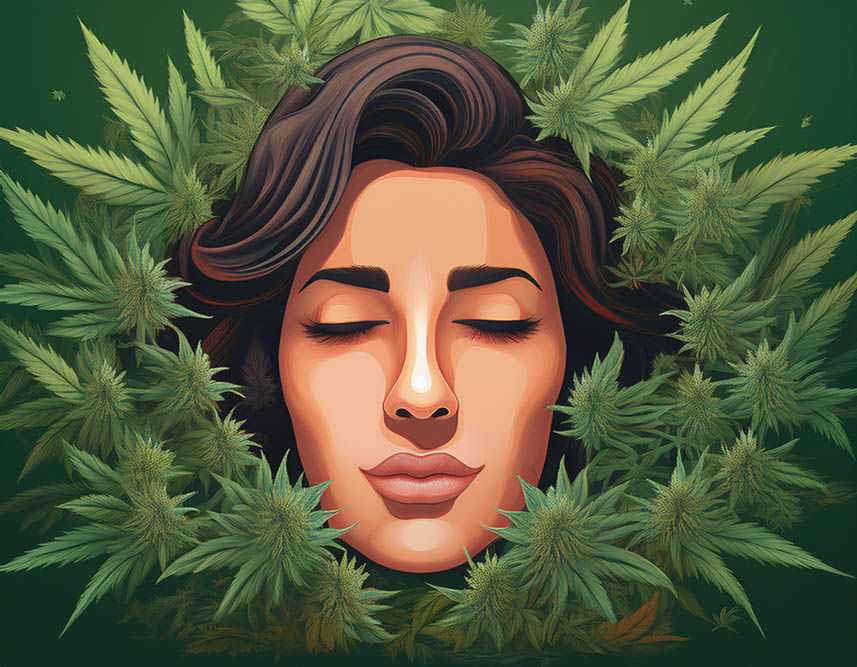The smell of Cannabis has never been neutral. It was once an unmistakable warning sign, drawing the attention of police or neighbors and making consumption a risk. At the same time, that skunky punch was a signal to the initiated, a kind of social bat signal that weed was near. To this day, smell remains one of the most recognizable parts of the Cannabis experience. And yet, in the supposed era of normalization, it is being targeted in ways that reveal how little has actually changed.
In recent years, “nuisance” complaints have become a primary tool in policing Cannabis. Homeowners associations enact weed bans under the cover of neighborhood decorum. Cities pass odor ordinances that treat the plant as if it were toxic waste. These rules may not look like Prohibition, but they carry its spirit forward. They rely on the idea that Cannabis should stay hidden.
At the same time, the legal industry has found its way of downplaying Cannabis’ sensory presence. Packaging has become sleeker, quieter and more “design-forward.” In California, to give just one example, you can’t even smell the buds before you buy them. Talk about antithetical to the spirit of things.
The idea is to make Cannabis products resemble skin care, matcha or boutique supplements — anything but weed. Of course, there are arguments in favor of this strategy: a wider audience, less stigma and easier retail placement. But the result is a flattening of the culture and enthusiasm that allowed Cannabis to become semi-legal at all, that ushered in a subculture. The unruly qualities that made it distinct — its funk, visibility and reputation as a disruptor — are now subdued, disguised or stripped out entirely.
Scent is especially under pressure. Products are marketed as being low-odor, discreet and “lifestyle-friendly.” Vaporizers, edibles and tinctures avoid the smell altogether. Even flower, the most aromatic format, is increasingly sealed inside multiple layers of plastic and cardboard designed as much to mute odor as to comply with regulations. The message is clear: Weed should be consumed politely behind closed doors without notice.
But scent is not a superficial detail. It is memory, emotion and culture. Consider how fragrance is utilized in other industries. Perfume houses build entire empires on the power of scent. Food is unimaginable without aroma. Coffee, wine and whiskey all rely on deeply developed vocabularies to describe their smells, which in turn are celebrated as central to the experience. Cannabis has its own lexicon — skunk, gas, fruit, pine — and those descriptors connect directly to how the plant feels, grows and works in the body.
There’s also a political truth to odor. It has long been used to criminalize. Police officers regularly cite smell as probable cause. Landlords use it as justification for eviction. Municipalities treat it as a public health hazard, despite lacking evidence to support claims. When brands or consumers lean into the idea that weed’s smell is something to hide, they reinforce those structures, whether intentionally or not.
At the same time, there is something deeply human in the way Cannabis odor has historically built community. People remember catching whiffs at concerts, in college dorms or on city streets and feeling both curiosity and recognition. Scent draws lines, sometimes between safety and danger, but also between inclusion and exclusion, familiarity and fear. The smell of Cannabis can be a comfort, a warning or a reminder of history. It is never neutral.
What we’re witnessing now is a reshaping of weed shame into something softer, but no less real. It is not the blunt force of Prohibition, with raids and arrests, although those still occur in many places. It is the pressure to assimilate. To keep Cannabis presentable, muted and palatable enough to pass in spaces that still don’t accept it fully. More polite does not mean more freedom.
If normalization is going to mean anything beyond market growth, the sensory reality of Cannabis has to be included. It is integral to the plant’s identity, science and culture. To deny that is to deny the very thing that made Cannabis powerful in the first place: its ability to announce itself, unapologetically, to the world.









